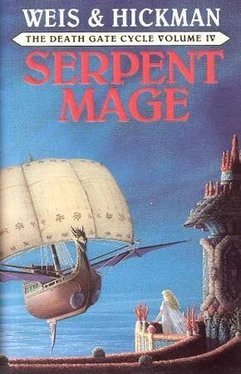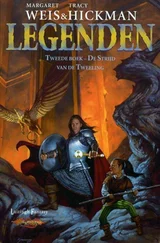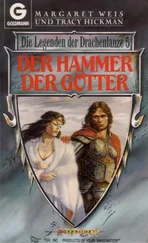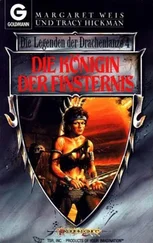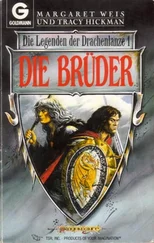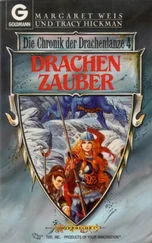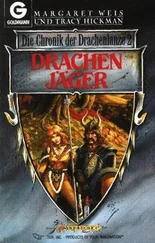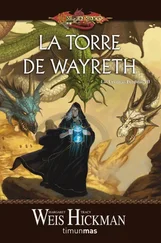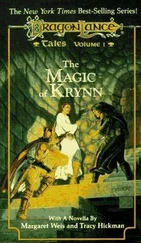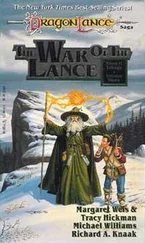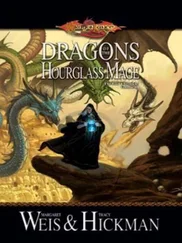Margaret Weis - Serpent Mage
Здесь есть возможность читать онлайн «Margaret Weis - Serpent Mage» весь текст электронной книги совершенно бесплатно (целиком полную версию без сокращений). В некоторых случаях можно слушать аудио, скачать через торрент в формате fb2 и присутствует краткое содержание. Жанр: Фэнтези, на английском языке. Описание произведения, (предисловие) а так же отзывы посетителей доступны на портале библиотеки ЛибКат.
- Название:Serpent Mage
- Автор:
- Жанр:
- Год:неизвестен
- ISBN:нет данных
- Рейтинг книги:5 / 5. Голосов: 1
-
Избранное:Добавить в избранное
- Отзывы:
-
Ваша оценка:
- 100
- 1
- 2
- 3
- 4
- 5
Serpent Mage: краткое содержание, описание и аннотация
Предлагаем к чтению аннотацию, описание, краткое содержание или предисловие (зависит от того, что написал сам автор книги «Serpent Mage»). Если вы не нашли необходимую информацию о книге — напишите в комментариях, мы постараемся отыскать её.
Serpent Mage — читать онлайн бесплатно полную книгу (весь текст) целиком
Ниже представлен текст книги, разбитый по страницам. Система сохранения места последней прочитанной страницы, позволяет с удобством читать онлайн бесплатно книгу «Serpent Mage», без необходимости каждый раз заново искать на чём Вы остановились. Поставьте закладку, и сможете в любой момент перейти на страницу, на которой закончили чтение.
Интервал:
Закладка:
Feeling all eyes (two eyes in particular) on me, I twined the ribboned lock of hair firmly around the nail, put the nail to the wooden hull, and was just about to rap the nail smartly with the hammer, when I heard a low murmur sweep through the crowd. It reminded me of the rising of the sea during one of the rare Chelestran storms.
My first thought, I remember, was one of extreme irritation that something or someone was ruining my big moment. Aware that the crowd’s attention had been drawn from me, I lowered the hammer and glanced around indignantly to see what all the fuss was about.
Every Gargan—man, woman, and child—was staring out to sea. Some were pointing. Those shorter than the rest were standing on tiptoe, craning their necks to get a look.
“It figures,” I grumbled, endeavoring to peer around the submersible and not having much luck. “Alake and Sabia have come after all, right in the middle of everything. Well, their timing was bad, but at least they’ll be here to watch. I can always start over.”
But I could tell by the expressions on the faces of the dwarves standing below me, who had clear view out to sea, that whatever was coming wasn’t one of the gaily decorated swan ships we build for the elves, or one of the sturdy fishing ships we build for the humans. These would have been welcomed with much beard-wagging and the occasional hand-wave, about as demonstrative as dwarves ever get. Now beards were being stroked—a sign of dwarven unease—and mothers were quickly rounding up children who had strayed. The marshall of the dwarven army ran to the platform.
“Vater, you must see this!” he shouted.
“Stay here,” my father ordered us, and descending the platform, he hurried after the marshall.
The ceremony was obviously ruined. I was angry about that, angry about the fact that I couldn’t see a thing, angry at Father for dashing off. I stood clutching the hammer and the lock of hair and cursed the fate that made me a princess, left me standing on this stupid platform when every other person in Gargan had a clear view of what was going on.
I didn’t dare disobey my father—a dwarf maid who did that would have her side whiskers clipped in punishment, a humiliating experience—but surely it wouldn’t hurt if I moved to the end of the platform. Perhaps I could see from there. I had taken a step and could hear my mother draw in her breath to order me back when Hartmut jumped up onto the platform and ran to us.
“The Vater has commanded me to keep you and your daughter safe in his absence, Muter,” he said, with a respectful bow to my mother.
His eyes were on me, however.
Perhaps fate knew what it was about, after all. I decided to stay where I was.
“What’s happening?” my mother was asking anxiously.
“A disturbance in the sea, nothing more,” said Hartmut casually. “An oil slick of some sort is spreading and a few people thought they saw heads sticking up out of it, but I think they’re looking through the bottom of an ale mug. Most likely it’s a school of fish. The boats are setting out to investigate.” My mother seemed reassured. I wasn’t. I saw Hartmut’s eyes stray to his marshall, watching for orders. And though he was making a gallant attempt to smile, his face was grim.
“I think, Muter,” he continued, “that until we establish just what’s causing this oil slick, it might be wise if you were to step down from this platform.”
“You’re right, young man. Grundle, give me that hammer. You look silly standing there, hanging onto it. I’m going to go join your father. No, Grundle, you stay with the young guard.” My mother bustled off the platform and sallied out into the crowd after my father. I sent my thanks and my blessing after her.
“I don’t think you look silly,” Hartmut said to me. “I think you look splendid.”
I edged closer to the young dwarf, and now that my hand was free of the hammer, it could accidentally find its way into his hand. The boats were putting off from the beach, their rowers pulling on the oars, shooting out to sea. We left the platform and, along with the rest of the population of Gargan, hurried down to the water’s edge.
“What do you think it is?” I asked in a low voice. “I don’t know,” said Hartmut, allowing his trouble to show now that we were alone. “We’ve heard odd tales all week. The dolphins report strange creatures swimming the Goodsea. Serpents whose skin is covered with oil that fouls the water and poisons any fish unlucky enough to wander into it.”
“Where did they come from?” I drew nearer. “No one knows. According to the dolphins, when the seasun began altering its course, it thawed out several seamoons that have been frozen for the One knows how long. Perhaps these creatures came from one of those moons.”
“Look!” I gasped. “Something’s happening.” Most of the dwarves in their small boats had ceased to row. Some had shipped their oars and sat motionless in the water, staring out to sea. Others had nervously begun to pull back for shore. I could see nothing except the oil on the water—a greenish, brownish slime that smoothed out the waves and left a film on the sides of the boats it touched. I could smell it, too; a noxious odor that made me sick to my stomach.
Hartmut gripped my hand hard. The water was starting to recede! I’d never seen anything like it—as if some gigantic mouth were sucking the water out from under us!
Several boats were already beached, left stranded on the wet, oil-coated sand. Those boats standing farther out were being sucked along with the water! The sailors pulled on the oars, battling frantically to halt their forward motion. The submersibles sank lower and lower, then, rocking back and forth, they struck bottom with a tearing, grinding sound.
And then, an enormous head soared upward out of the waves. Its skin was gray-green and covered with scales that glistened in the weak sunlight with an ugly iridescence. Its head was small, the same size as the neck. It seemed to be all neck, unless one counted the back part as tail. The serpent moved in a horrible, sinuous curve. Its eyes were green when it first looked at us, but then the eyes changed, began to glow a dreadful fiery red. The serpent drew itself up and up and, as it rose, it sucked the water up with it. It was huge, monstrous. It seemed half the height of the mountain, at least. I watched the seawater rush away from me and I had the sudden, frightening feeling that I was about to be carried out into it. Hartmut put his arm around me. His body, thick and stocky, was solid and reassuring.
The serpent reached what seemed an impossible height, then down it dropped, smashed headfirst into the flagship, punching a huge hole in the ship’s hull. The seawater surged back to shore in a great wave.
“Run!” my father shouted, his voice booming over the shocked cries of the crowd. “Run for the mountain!”
The Gargan turned and fled. Even in our fear, there was no confusion or disorder, no panic. Elder dwarves, who couldn’t move fast enough, were whisked off their feet by their sons and daughters and carried bodily. Mothers grabbed infants, fathers lifted older children to their shoulders.
“Run on ahead, Grundle!” Hartmut told me. “I must return to my command.” He raced off, hefting his battle-ax, to rejoin the army that was grouping at the water’s edge, prepared to cover the people’s retreat.
I knew I should run, but my feet seemed to have gone numb; my legs were too weak to do anything more than keep me standing upright. I stared at the serpent, who had risen, unharmed, out of the wreckage of the submersible. Toothless mouth gaping in what might have been a noiseless laugh, it hurled itself down on another ship. Wood splintered and broke apart. Other creatures that looked exactly like the first rose out of the sea and started to break apart the remainder of the submersibles and any other boat they could find. The waves created by the creatures thundered down on the shoreline, completing the destruction.
Читать дальшеИнтервал:
Закладка:
Похожие книги на «Serpent Mage»
Представляем Вашему вниманию похожие книги на «Serpent Mage» списком для выбора. Мы отобрали схожую по названию и смыслу литературу в надежде предоставить читателям больше вариантов отыскать новые, интересные, ещё непрочитанные произведения.
Обсуждение, отзывы о книге «Serpent Mage» и просто собственные мнения читателей. Оставьте ваши комментарии, напишите, что Вы думаете о произведении, его смысле или главных героях. Укажите что конкретно понравилось, а что нет, и почему Вы так считаете.
